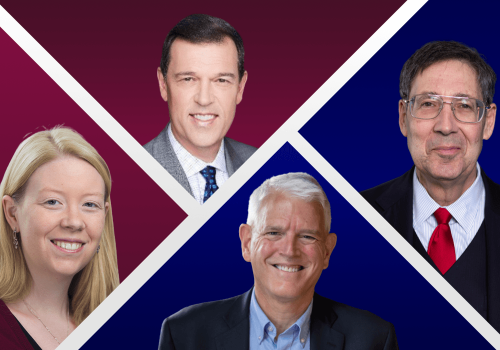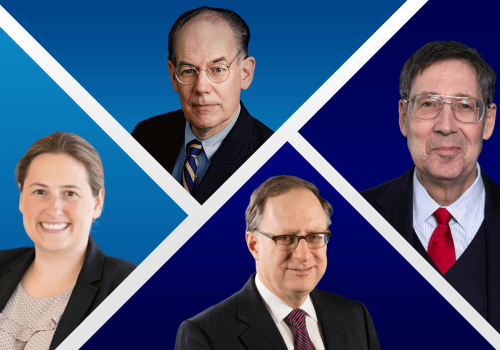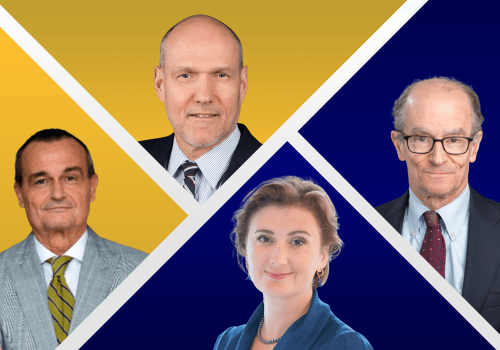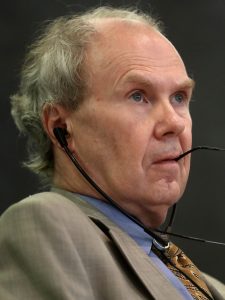A strong democracy requires both vigorous debate and civility; the Atlantic Council insists on nothing less. In that spirit the New American Engagement Initiative and the Eurasia Center invite you to a debate: Russia policy—American interests and values, on April 6 from 9:00 to 10:00 a.m. EDT via Zoom.
Frederick Kempe, president and chief executive officer of the Atlantic Council, provides opening remarks. Dr. Emma Ashford and Dr. Mat Burrows make the argument that US interests would be better served by a less confrontational, more nuanced policy towards Russia; while Melinda Haring and Ambassador John Herbst contend that thwarting Kremlin revisionism must remain the heart of US policy even as we are open to cooperation on other issues. Zack Beauchamp, senior correspondent at Vox, moderates.
We hope you can join us as friends and colleagues, reflecting both the realist and internationalist views that have long found a home at the Atlantic Council, respectfully offer sharply contrasting views on this critical topic.
Since at least the emergence of the Soviet Union a century ago, American policy toward Moscow has been the subject of intense debate in the US and a core component of American foreign policy. As George Kennan put it in The Sources of Soviet Conduct, “the issue of Soviet-American relations is in essence a test of the over-all worth of the United States as a nation among nations.” And since its founding, the Atlantic Council has played an active role in that discussion, consistent with its long tradition of open debate on foreign policy.
Both realist and internationalist thinkers have long been involved in that debate. Realism was the watchword of Atlantic Council elder Brent Scowcroft, whose focus on long-term strategic thinking motivates the work of the Scowcroft Center for Strategy and Security. The Atlantic Council, since its founding, has also been the home of proponents of a strong transatlantic relationship and the need to push back against authoritarian challenges to the international liberal order in the aftermath of World War II.
Consistent with these traditions, in 2020 the Council launched the New American Engagement Initiative, which provides a realist perspective for fresh thinking on how the US can more effectively engage abroad and avoid the foreign policy mistakes of the past. Since Russia’s annexation of Crimea and invasion of Donbas, the Eurasia Center has been a leading voice in the public debate on Ukraine and also Russia policy. The differences between these two approaches came dramatically to public attention recently as the New American Engagement Initiative and the Eurasia Center offered starkly different views on the question of American policy toward Russia.
This debate on Russia policy will explore the options available to the United States and its allies and partners in dealing with the Kremlin.







Follow us on social media